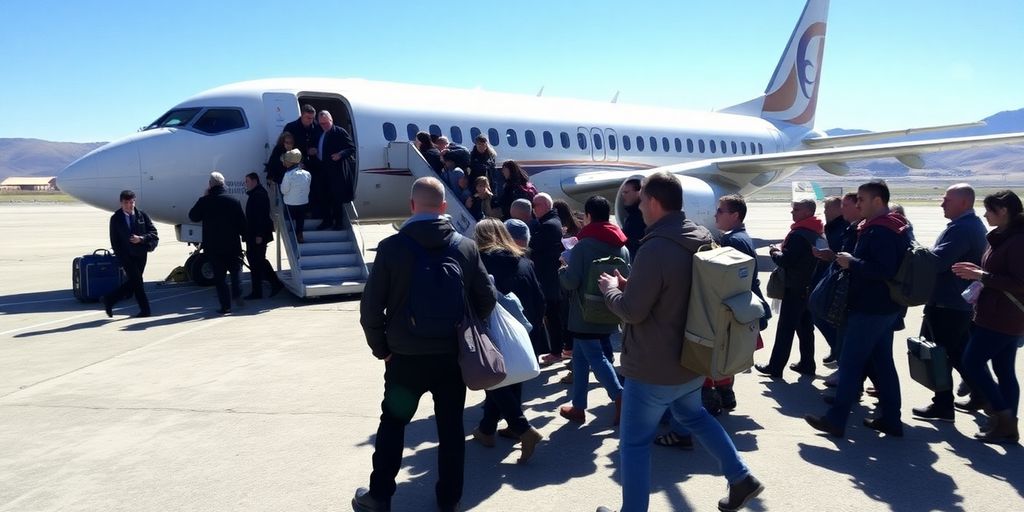Kosovo has agreed to a request from the United States to temporarily host up to 50 migrants annually who have been deported from the U.S. but are not citizens of Kosovo. This decision, announced by the Kosovar government, underscores the strong alliance between the two nations and aligns with the Trump administration’s intensified efforts to deport non-citizens.
A Strategic Alliance: Kosovo’s Role in US Deportation Efforts
Kosovo’s agreement to host third-country deportees from the U.S. highlights its commitment as a steadfast ally. This move comes amidst the Trump administration’s renewed focus on immigration enforcement and its strategy of seeking international partners for migrant relocation. The U.S. State Department expressed gratitude for Kosovo’s cooperation, emphasizing its importance to the administration’s priorities.
- The agreement allows for the temporary relocation of up to 50 individuals per year.
- The primary goal is to facilitate the safe return of these individuals to their countries of origin.
- Kosovo will have the opportunity to select individuals from a proposed list, based on criteria related to rule of law and public order.
Context of the Agreement: Trump Administration’s Broader Strategy
This agreement is part of a larger U.S. strategy to deport migrants, particularly those whose home countries are unwilling to accept them. The Trump administration has actively pursued similar deals with other nations, including Costa Rica, Panama, and El Salvador, for the deportation of migrants from various regions.
- The U.S. has previously deported hundreds of Asian and African migrants to Costa Rica and Panama.
- Over 200 Venezuelans accused of gang affiliations were sent to El Salvador’s high-security mega-prison.
- Attempts to deport migrants to unstable nations like Libya and South Sudan have faced legal challenges in U.S. courts.
Kosovo’s History of International Cooperation
Kosovo, which declared independence from Serbia in 2008 with significant U.S. support, has a history of assisting in international humanitarian and security efforts. This includes hosting Afghan evacuees after the 2021 U.S. withdrawal from Afghanistan and an agreement with Denmark to lease prison cells for foreign inmates.
- After the U.S. withdrawal from Afghanistan, Kosovo hosted approximately 1,900 Afghan citizens for vetting before their relocation.
- In 2022, Kosovo agreed to lease 300 prison cells to Denmark for foreign prisoners, in exchange for over 200 million euros for correctional services and renewable energy projects.
- The nation has also expressed willingness to discuss similar arrangements with the United Kingdom regarding migrant centers.
International Reactions and Concerns
While the agreement strengthens U.S.-Kosovo ties, it has also drawn attention from international organizations. Human Rights Watch has previously raised concerns that using Balkan countries as host nations for migrants could lead to human rights violations and create new challenges for the host countries. However, Kosovo officials maintain that individuals will be treated in accordance with local legislation and international standards.
Sources
- Kosovo decides to accept 50 immigrants from the US, KOHA.net.
- Kosovo government expresses readiness to accept migrants deported from the US, cna.al.
- European Country Agrees to Take Detained US Migrants, Newsweek.
- Kosovo agrees to accept U.S. deportations of migrants from other countries, CBS News.
- Kosovo accepts US request to host third-party deportees, Reuters.






